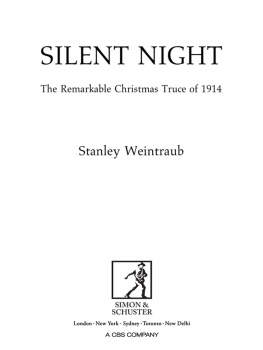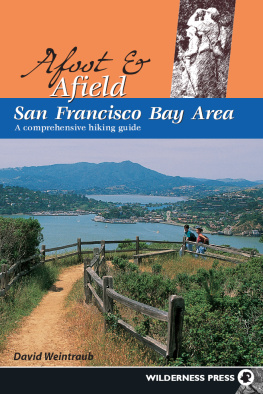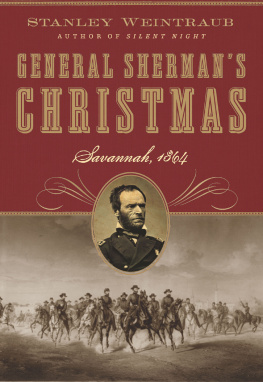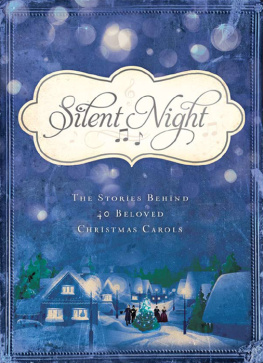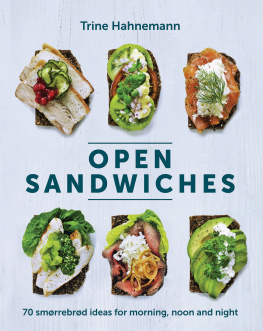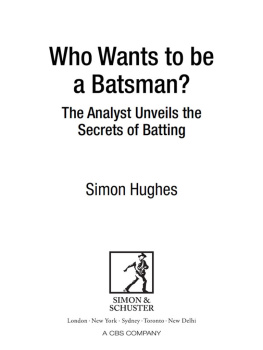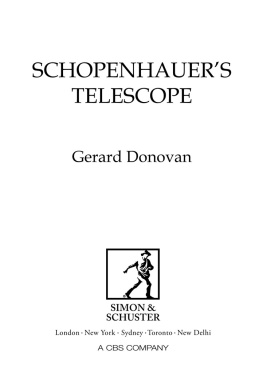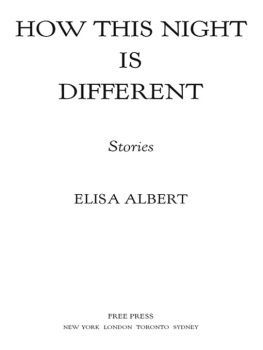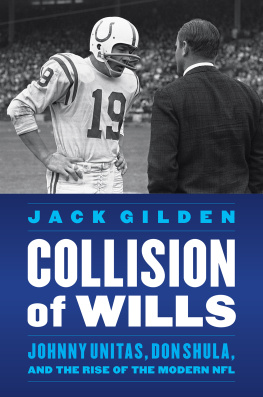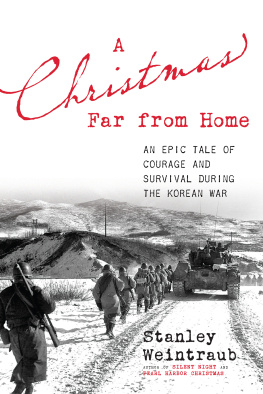SILENT NIGHT

Praise for Silent Night
Like the best and most honourable historians, he allows the story to tell itself, using newspaper articles, unit histories, political cartoons, photographs, diaries and letters. And, in the end, what appears from the winter fog and misery is a Christmas story, a fine Christmas story that is, in truth, that most faded and tattered of dust-jacket adjectives, inspiring. It really is Wall Street Journal
Moving and unsentimental, with some excellent illustrations Irish Times
All credit to Stanley Weintraub for reminding us of the common humanity submerged by violence Sunday Express
Weintraub uses first-hand accounts from letters, diaries and unit reports to present a deeply moving story Glasgow Evening Times
This is an emotionally stirring, uplifting, yet ultimately sad story brilliantly told by a gifted writer Booklist
Weintraub has written a moving and evocative account of an astonishing piece of modern history, piecing it together from first-hand accounts from both the German and Allied side Evening Leader
Stanley Weintraubs poignant account of the day that one of the worst of wars took a holiday sounds like the stuff of fiction, but it was the sort of event that only fiction can imitate. No wonder that his book reads like a novel, a true story that has the power to haunt Robert Cowley, founding editor of MHQ: The Quarterly Journal of Military History
Also by Stanley Weintraub
A Stillness Heard Round the World: The End of the Great War
Long Days Journey into War: December 7, 1941
The Last Great Victory: The End of World War II
Mac Arthurs War: Korea and the Undoing of an American Hero
Charlotte and Lionel: A Rothschild Marriage
11 Days in December: Christmas at the Bulge, 1944
First published in Great Britain by Simon & Schuster UK Ltd, 2001
This paperback edition published by Simon & Schuster, 2014
A CBS COMPANY
Copyright Stanley Weintraub, 2001
This book is copyright under the Berne Convention.
No reproduction without permission.
All rights reserved.
The right of Stanley Weintraub to be identified as author of this work has been asserted by him in accordance with sections 77 and 78 of the Copyright, Designs and Patents Act, 1988.
Simon & Schuster UK Ltd
1st Floor
222 Grays Inn Road
London WC1X 8HB
www.simonandschuster.co.uk
Simon & Schuster Australia, Sydney
Simon & Schuster India, New Delhi
A CIP catalogue record for this book is available from the British Library
ISBN 978-1-47113-519-4
eBook ISBN 978-1-47113-677-1
Painting by Karel Lauwers courtesy of In Flanders Fields Museum, Ieper, Belgium
Typeset by Palimpsest Book Production Limited, Polmont, Stirlingshire
Printed and bound by CPI Group (UK) Ltd, Croydon CR0 4YY
for
Robert C. Doyle
and
Beate Engel-Doyle
Peace is harder to make than war.
A Stillness Heard Round the World:
The End of the Great War
(Stanley Weintraub, 1985)

Introduction
Three myths would arise during the early months of the Great War. Burly Cossacks, sent by the Czar to bolster the Western Front, were seen embarking from British railway stations for Dover, still shaking the persistent snows of Russia from their boots. In France, during the British retreat from Mons, angels appeared spirit bowmen out of the English past to cover the withdrawal. And that, to the dismay of the generals, along the front lines late in December 1914, opponents in the West laid down their arms and celebrated Christmas together in a spontaneous gesture of peace on earth and good will toward men. Only one of the myths the last was true.
In an issue sent to press just before Christmas, The New Republic, an American weekly writing from a plague-on-both-sides neutrality, accepted what seemed obvious. If men must hate, it is perhaps just as well that they make no Christmas truce. A futile resolution had been introduced in the Senate in Washington, urging that the belligerents hold a twenty-day truce at Christmas with the hope that the cessation of hostilities at the said time may stimulate reflection upon the part of the nations [at war] as to the meaning and spirit of Christmas time.
Since early August the European war had claimed hundreds of thousands of killed, wounded, and missing. An appeal for a cease-fire at Christmas from Pope Benedict XV, elected just three months earlier, only weeks after war had broken out, had made headlines but was quickly rebuffed by both sides as impossible. Rather, The New Republic suggested sardonically, The stench of battle should rise above the churches where they preach good-will to men. A few carols, a little incense and some tinsel will heal no wounds. A wartime Christmas would be a festival so empty that it jeers at us.
To many, the end of the war and the failure of the peace would validate the Christmas cease-fire as the only meaningful episode in the apocalypse. It belied the bellicose slogans and suggested that the men fighting and often dying were, as usual, proxies for governments and issues that had little to do with their everyday lives. A candle lit in the darkness of Flanders, the truce flickered briefly and survives only in memoirs, letters, song, drama and story.
Live-and-let-live accommodations occur in all wars. Chronicles at least since Troy record cessations in fighting to bury the dead, to pray to the gods, to negotiate a peace, to assuage war weariness, to offer signs of amity to enemies so long opposite in a static war as to encourage mutual respect. None had ever occurred on the scale of, or with the duration, or with the potential for changing things, as when the shooting suddenly stopped on Christmas Eve, 1914. The difference in 1914 was its potential to become more than a temporary respite. The event appears in retrospect somehow unreal, incredible in its intensity and extent, seemingly impossible to have happened without consequences for the outcome of the war. Like a dream, when it was over, men wondered at it, then went on with the grim business at hand. Under the rigid discipline of wartime command authority, that business was killing.
Dismissed in official histories as an aberration of no consequence, that remarkable moment happened. For the rival governments, for which war was politics conducted by persuasive force, it was imperative to make even temporary peace unappealing and unworkable, only an impulsive interval in a necessarily hostile and competitive world. The impromptu truce seemed dangerously akin to the populist politics of the streets, the spontaneous movements that topple tyrants and autocrats. For that reason alone, high commands could not permit it to gain any momentum to expand in time and in space, or to capture broad appeal back home. That it did not was more accident than design.
After a silent night and day in many sectors much more than that the war went on. The peace seemed nearly forgotten. Yet memories of Christmas 1914 persist, and underlying them the compelling realities and the intriguing might-have-beens. What if... ?
Late in December 1999 a group of nine quirky Khaki Chums crossed the English Channel to Flanders with the blatantly daft idea of commemorating the truce where it may have begun, near Ploegsteert Wood in Belgium. Wearing makeshift uniforms recalling 1914, and working in the rain and snow, they dug trenches, reinforcing them with sandbags and planks which literally disappeared into the bottomless mud. For several days they cooked their rations, reinforced their parapets, and slept soaked through to the skin. They also endured curious onlookers and enjoyed visits from the media. Before departing, the nine planted a large timber cross in the quagmire as a temporary mark of respect for the wartime dead, filled back their trenches and slogged homeward.
Next page
